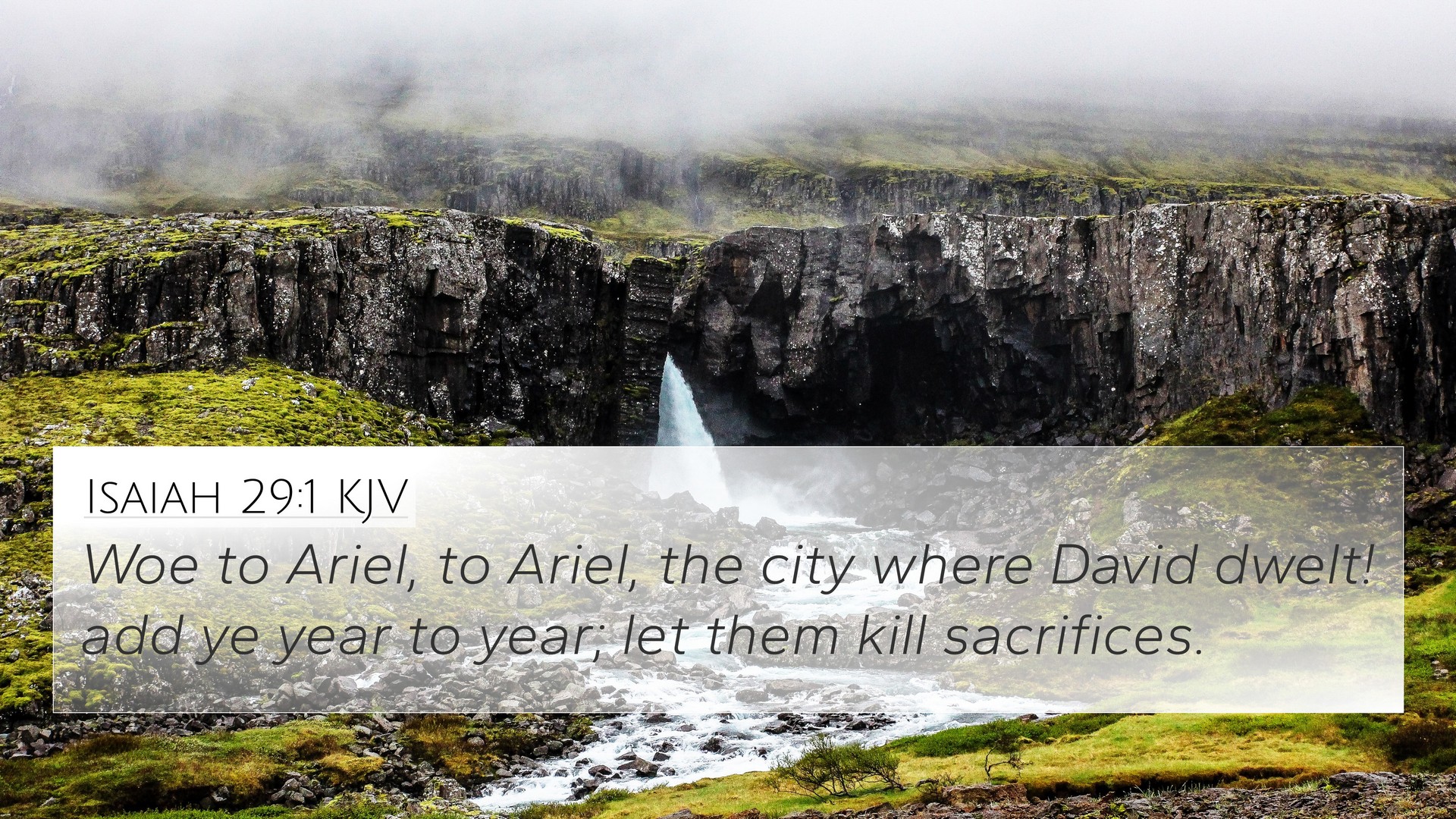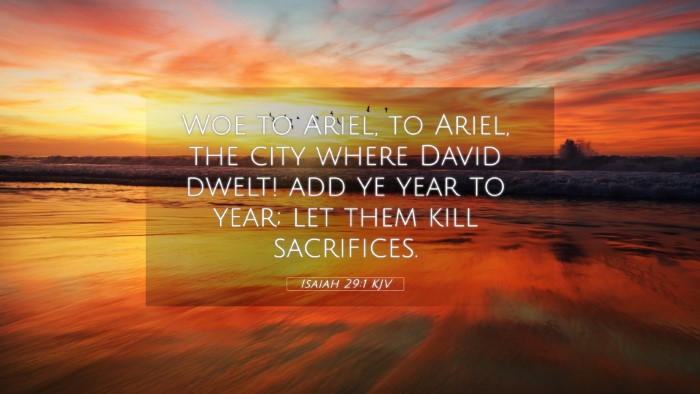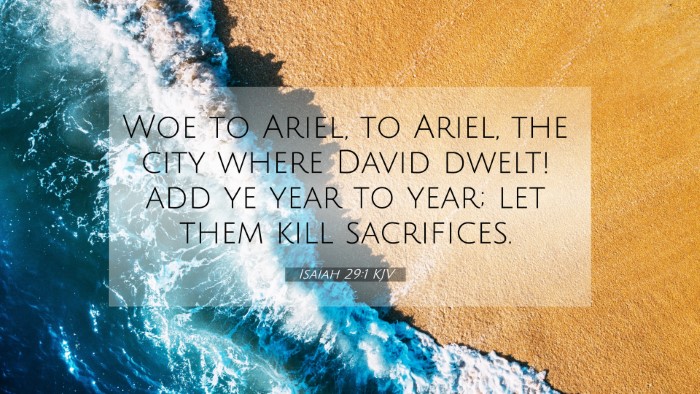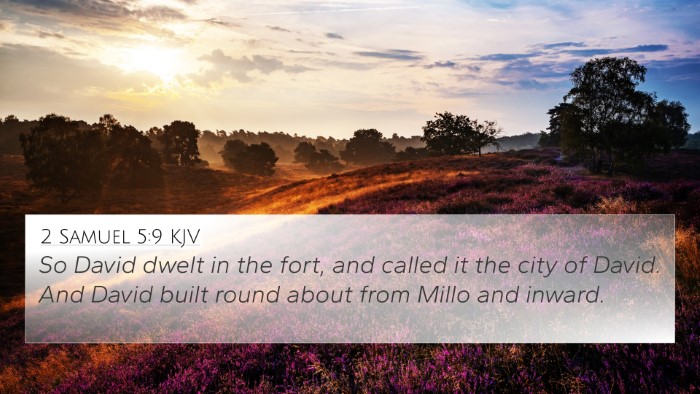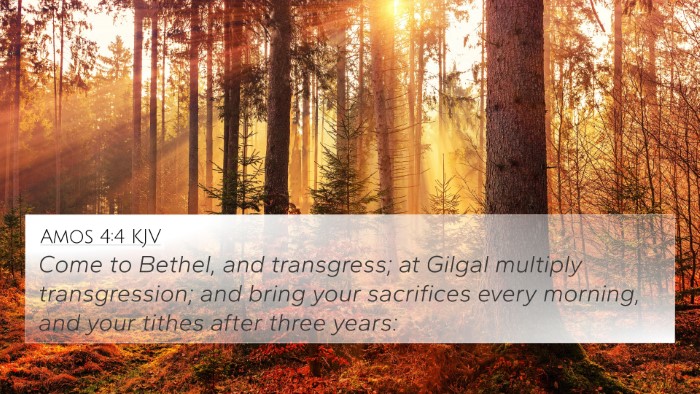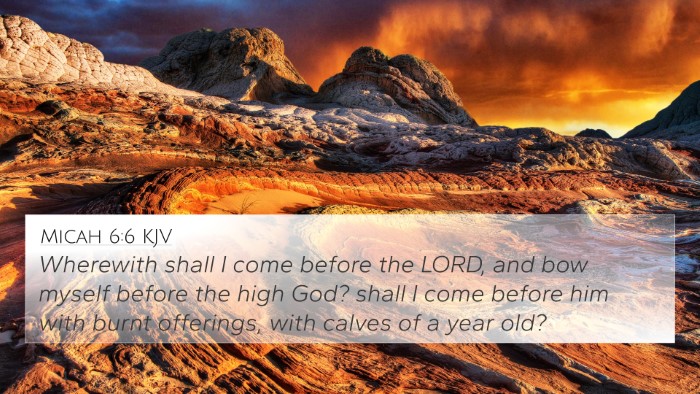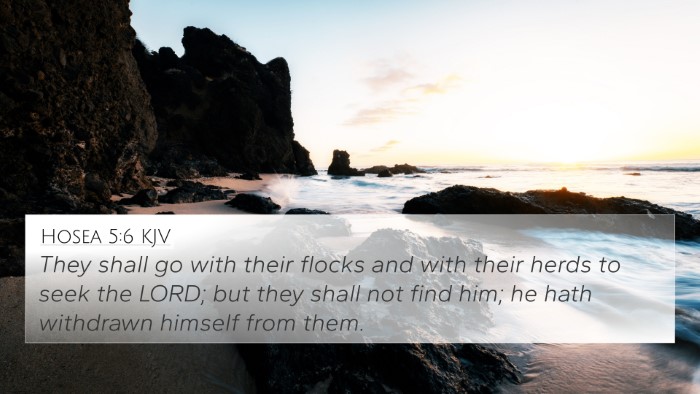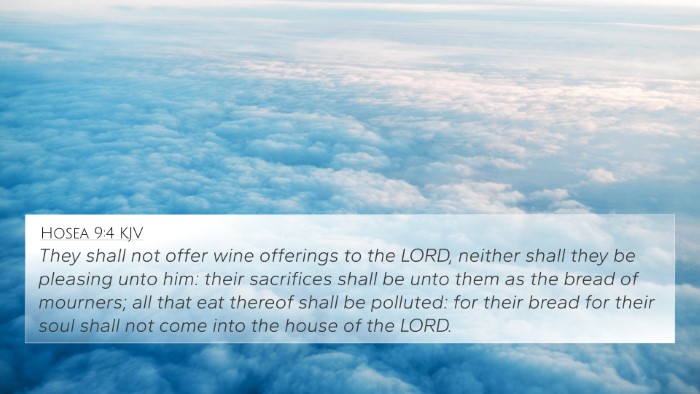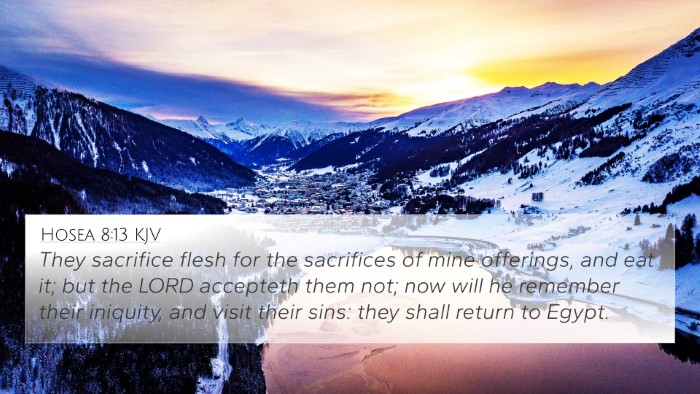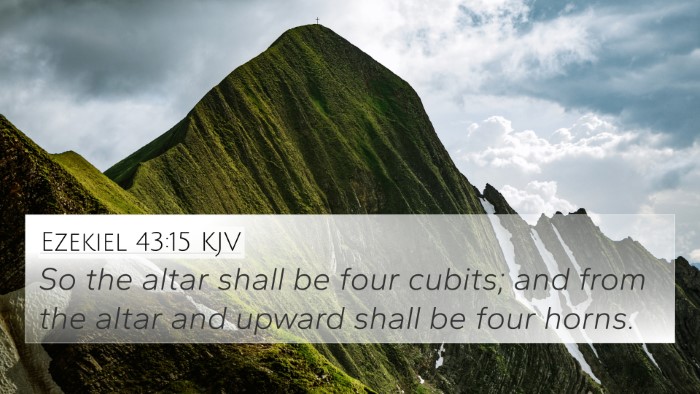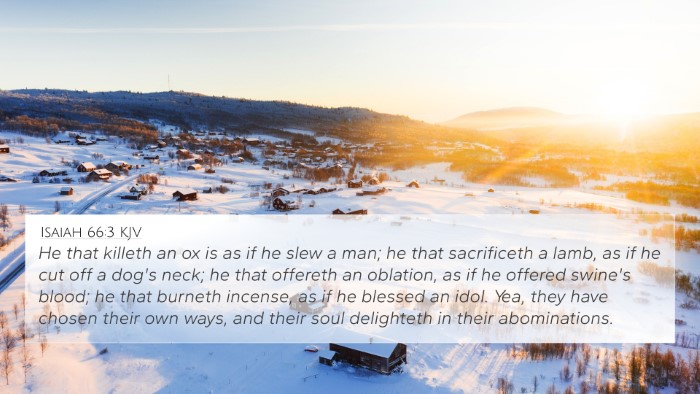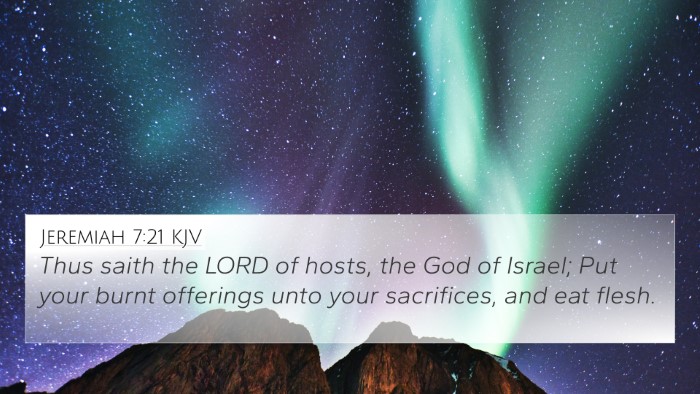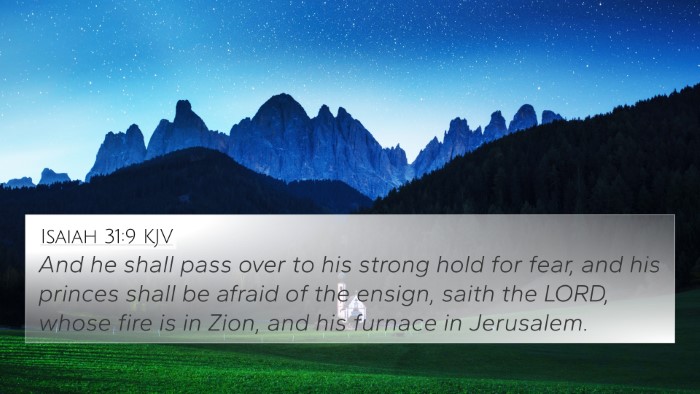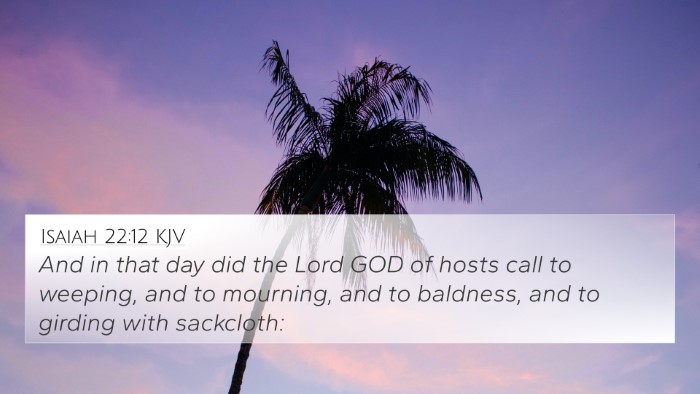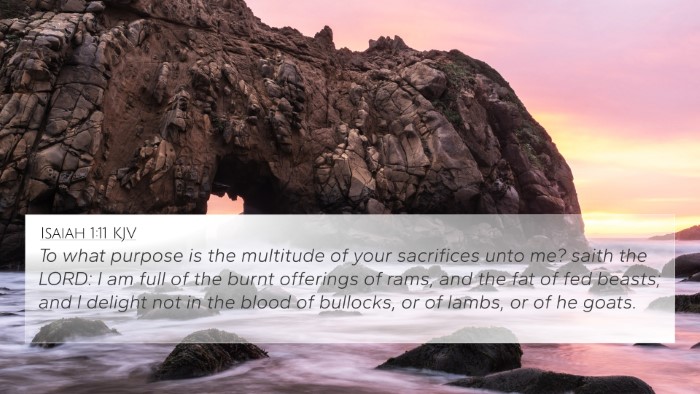Understanding Isaiah 29:1
Isaiah 29:1 reads: "Woe to Ariel, to Ariel, the city where David dwelt! Add ye year to year; let them kill sacrifices." This verse captures the essence of prophetic lament and calls for deeper reflection upon the significance of the city of Ariel, identified with Jerusalem.
General Overview
The prophet Isaiah addresses the city of Ariel, the symbolic center of spiritual life, highlighting its current state of hypocrisy and superficial worship. The repetition of the name "Ariel" serves to emphasize the serious warning to the people about their spiritual condition.
Commentary Insights
Matthew Henry's Commentary
Matthew Henry emphasizes that the term "Ariel" signifies "the lion of God," representing strength and divine authority. He suggests that the name underscores the juxtaposition between God’s power and human folly in neglecting true worship. Henry attributes the people's actions—relying on rituals rather than genuine piety—as leading to impending judgment and calamity.
Albert Barnes' Notes on the Bible
Albert Barnes elaborates on the historical context, noting this prophecy likely refers to a siege and the ensuing woes for those who engage in empty religious practices. He points out that while sacrifices were commanded, they failed to be meaningful due to the lack of corresponding heart change and obedience. Barnes warns of the futility of ritual without true repentance.
Adam Clarke's Commentary
Adam Clarke offers insights into the geographical and historical significance of Ariel. He interprets "year to year" as a metaphor for time passing without change or understanding, suggesting that the people’s constant observance of festivals and sacrifices was insipid and lacked spiritual vitality. He calls for a reckoning with their faith and the meaning behind their practices.
Biblical Cross-References
In exploring the connections between Isaiah 29:1 and other Scriptural passages, the following verses provide valuable insights:
- Isaiah 1:11-14 - The Lord expresses disdain for empty sacrifices.
- Jeremiah 7:21-23 - The call for obedience over sacrifice resonates here.
- Micah 6:6-8 - Emphasis on justice and mercy rather than mere offerings.
- Matthew 15:9 - Jesus quotes Isaiah on worshiping with lips while hearts are far from God.
- Hebrews 10:1-4 - A reflection on the limitations of the sacrificial system.
- Amos 5:21-24 - God’s rejection of feasts that lack justice and righteous living.
- James 1:27 - True religion involves caring for the vulnerable, not just rituals.
Thematic Connections
Isaiah 29:1 and its related texts explore several key themes:
- The emptiness of ritualism: Highlighted in both Isaiah and New Testament references.
- Divine judgment: The consequences of failing to live in accordance with God's will.
- The importance of sincere worship: God desires hearts that follow His commands.
- Prophetic warnings: Similar calls to repentance and change echo throughout Scripture.
Conclusion
Isaiah 29:1 serves as a powerful reminder of the importance of genuine worship and the dangers of relying on empty practices devoid of faith and obedience. Through various commentaries, it becomes evident that God seeks a heartfelt connection with His people, warning against complacency and urging for transformation.
Further Study
For those interested in conducting a deeper Bible study into cross-referencing and understanding themes within Scripture, various tools such as concordances and cross-reference guides can be invaluable in identifying interconnected scriptures that illuminate the text's meaning.
